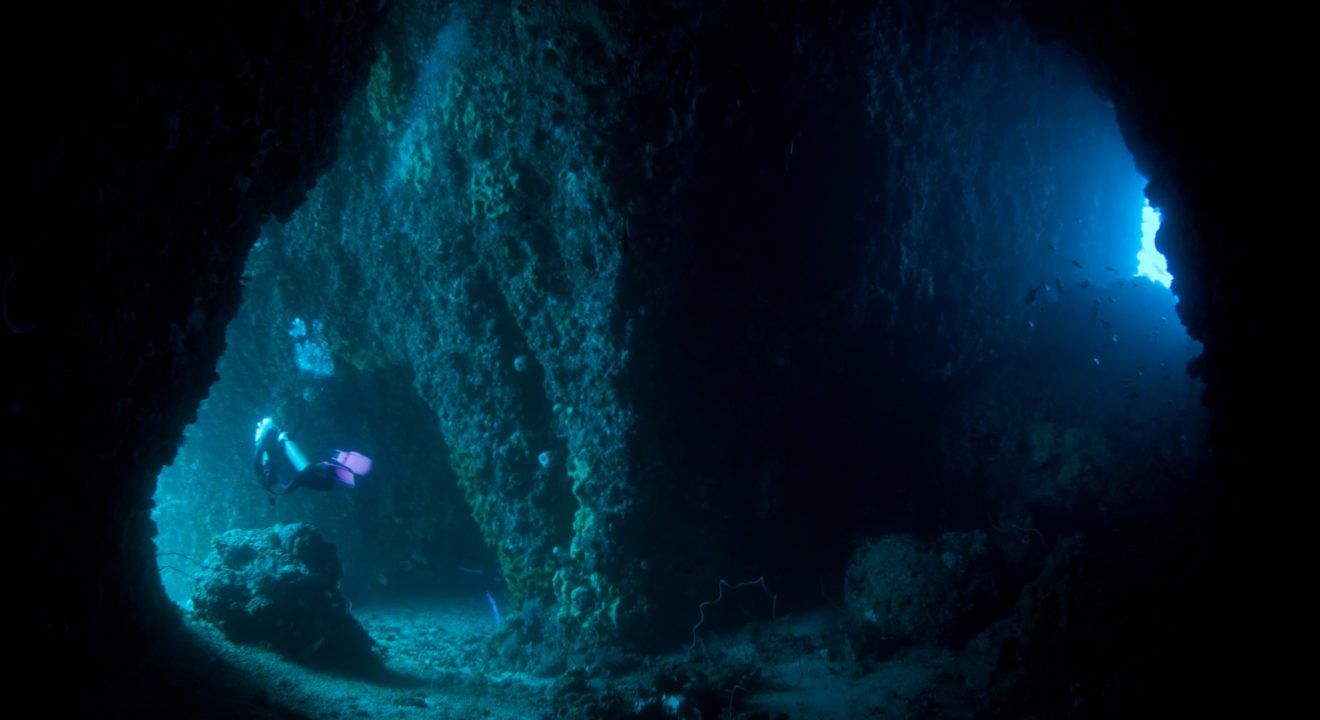Culture December 25, 2016


Most thalassophiles have already been deep sea diving, surfing, river rafting or just plain swimming already. Staying away from the ocean just doesn’t come naturally to them. But what a lot of sea lovers have probably not done is cavern diving.
Cave diving is both a leisurely pursuit and a career, but it is one to be taken seriously. The pursuit is particularly dangerous because you have to venture into the dark depths of the sea and return in one piece. Kenny Broad, of National Geographic, explore underwater caves and gives viewers a taste of what it’s like in his career field. In some ways, the hashtag #BestJobEver may accurately describe cave diving. It’s adventurous, adrenaline-packed and certainly full of gorgeous views.
Yet, like many occupations, scuba diving isn’t immune from sexism. Here are five reasons why cave diving may not be the best job ever if you’re a female.
Now, it’s time to take a trip back to high school math class. The Diving Equipment and Marketing Association reports that, as of 2015, 35 percent of open water recreational divers are women and 23 percent of continuing education students are women. However, as one examines the numbers for advanced divers, the statistics only get worse. Less than 20 percent of the Professional Association of Diving Instructor’s members are women and only 13 percent of PADI Master Instructors are women.
So women seem, well, like a fish out of water in terms of how many exist in the diving world. However, several women have still made a name for themselves in scuba diving. Simone Melchior was the first female scuba diver – but you probably don’t recognize her name. Instead, you may have heard of her husband, Jacques-Yves Cousteau, even though Melchior was his business partner and helped manage the Cousteau’s all-male crew for forty years!
READ MORE: 3 Basic Steps to Get Your Scuba On
Perhaps a another familiar name is Sylvia Earle, who is not only an early female diver, but also a marine biologist, conservation advocate and recipient of the 2009 TED Prize. Her proposal to create a global network of marine protected areas she refers to as the “blue heart of the planet,” though, seems to have overshadowed her impressive feats as a diver.
If you were on Jeopardy and had to name one myth about female scuba divers, what would you say? Even if you’re not familiar with diving, you can probably guess some of the most prevalent assumptions, including:
According to Scuba Monkey, these are all myths that are still prevalent today – though they’ve all be proven untrue. As long as women are trained in the proper techniques, they can have no problem carrying heavy equipment or taking care of themselves in dangerous situations. Shark Behavior Expert Ralph S. Collier proved that sharks don’t experience the same “attack instincts” to human blood as blood from sea creatures, so Mother Nature doesn’t have to interfere with your diving schedule.
In fact, diving physician Lt. Col R Kelly Hill states, “The only difference between men and women divers is that during pregnancy women should not dive – everything else is trivia and misinformation.”
One of the most obvious example of sexism within the diving industry, according to Jill Heinerth at DiverMag, is the use of sexily-clad women to sell diving gear. As one reader in the Northeast diving community wrote, “I see a lot of ‘attractive’ people in diving ads. But there’s a significant amount more overt sexuality associated with the women models.”
READ MORE: Serena Williams Gets Candid About Body Shaming and Sexism in Sports
Beyond over-sexualizing (and simplifying) women, a lot of diving gear doesn’t properly fit women. NATO commissioned a study that examined the body proportions of men versus women. They concluded that women have lower centers of gravity, shorter torsos, longer legs, smaller waists and wider hips, along with a variety of other differences. What does this mean? Basically, “shrinking” men’s gear to fit women just won’t work. Instead, scuba gear needs to be specifically designed for women.
These stereotypes are hurting more than just the female divers, too. For instance, one male diver says, “The females are always walked gingerly through lessons while it appears that the instructors assume the males just get it right away.” Because men are expected to be strong and capable, male divers struggling with their heavy gear also don’t receive the help given to female divers.
Another male diving instructor reveals a similar, yet different problem. Some male divers might hate being outdone by female divers, creating a dangerously competitive environment. Although the competition may cause some divers to try to perform better, it can also trigger sexist comments … which don’t help anyone in the long run.
It’s impossible to deny that, in recent years, gender equality within diving has improved just like in other industries. Myths have been disproven, such as the old idea that women are more vulnerable to decompression illness. Women have gone from being diving oddities to making up a portion of professional and recreational divers.
READ MORE: Madonna Slams ‘Sexism, Misogyny and Constant Bullying’
However, all of these changes aren’t enough. We need to focus less on fitting women into diving and more on addressing women’s unique needs within diving. For instance, female divers can face unique health complications related to oral contraceptives, pregnancy and breastfeeding – all issues that traditional diving manuals and teachings may overlook. And, of course, problems like sexual harassment or discrimination still need to be countered.
There’s no doubt that scuba diving – including underwater cave diving – comes with plenty of rewards, adventures and amazing views. However, it’s also clear that scuba diving is in cloudy water when it comes to gender equality. Only once men and women can dive as equals can diving really be the #BestJobEver.